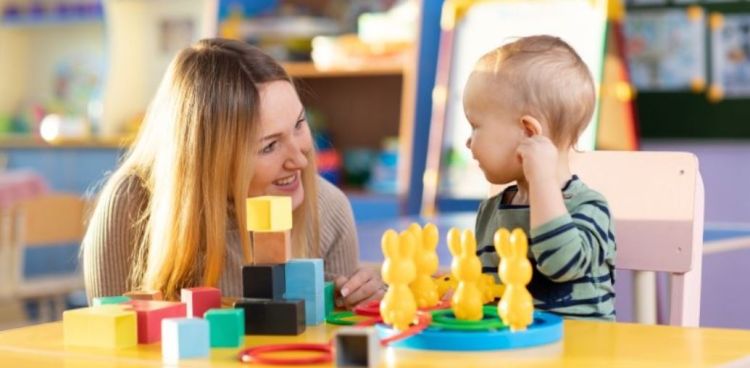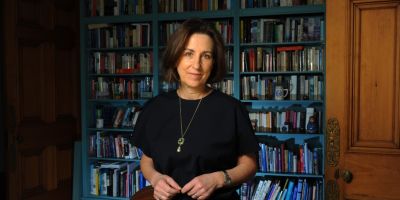Changes to early education and care in a post-pandemic sector

Early Childhood Education and Care is integral to children’s development. Professor Catherine Davies discusses its future and recent changes to childcare post-COVID-19
In 2020 the COVID-19 pandemic disrupted early education across the country but the full impact of this on children’s development is still emerging. With the current expansion of subsidised childcare and the upcoming general election politicising choices for the childcare sector, researchers in the School of Languages, Cultures, and Societies are working to understand the immediate and longer-term impacts on the profession.
Catherine Davies, Professor of Language Development, began her career with a degree in Linguistics, then pursued a Masters and a PhD in child language development.
“It is fascinating how we can understand each other when so much of what we say is underdetermined and implicit,” Catherine says. “We understand this due to our neurological abilities as well as our environment. Children are at the beginning stages of this, and I was interested in how they come to learn the hidden, inferential meanings within language.” To do this, Catherine used eye-trackers with children in early years settings to understand how they integrate their visual world with the things that they say and hear.
During the pandemic, Catherine and colleagues were awarded funding to understand the impacts of social distancing and the associated disruption of early education on children’s development.
“The pandemic was hugely disruptive at every stage of childhood”, Catherine says, speaking about the surge of research into the effects of COVID-19 for children and the growing concerns of parents. “I think that was the motivation they [parents] wanted. They were worried about their kids, and they thought maybe we [researchers] could help.”
The research found that the more time pre-schoolers spent in childcare during the first year of the pandemic, the better their communication, problem-solving skills and vocabulary were. These impacts could have challenging implications, particularly for lower-income families whose children suffered the most during COVID, as attainment gaps have the potential to widen.
“Nursery is good for everybody, but it is particularly good for children from disadvantaged backgrounds,” Catherine says. “Its positive impact on language and cognitive development is clear, underscored by our data taken when provision was taken away.”
Building on research during the pandemic, Catherine’s current project, BICYCLE (Born in COVID Year: Core Learning Effects), is examining three groups of children: those born pre-pandemic and those born during and post-pandemic. The project aims to reveal longer-term effects as babies who were born during the pandemic are this year starting school.
Challenges in expanding post-pandemic childcare
On April 1 2024, the government expanded subsidised childcare to eligible working parents of two-year-olds. By September 2025, most working families with children aged between 9 months and five-years-old will be entitled to 30 hours of childcare support. However, there are significant challenges for a sector that has been chronically underfunded to provide the required places for the expansion. There are also challenges with recruitment and retention of a workforce that has been undervalued.
It is not just about getting parents back to work, it is laying the foundations for lifelong achievement
“I know the government has offered this kind of golden handshake,” Catherine says, “but I don’t know if that’s really going to help retention.” Instead, Catherine argues, a whole-system change is needed, as outlined in the recently published joint manifesto by the Early Education and Childcare Coalition, which sets out the key priority areas for the next government, ahead of the General Election.
”There is a blind spot where the expansion of early education, despite its positive impact, may only provide intended effects to children as a sector when it becomes well-staffed, well-valued, and truly accessible.”
For that reason, early education is likely to be a significant talking point during the general election campaign as more and more families struggle with the uncertainty of whether their child will have a place in a nursery.
“With the cost of living, it is often not feasible to have just one parent working,” Catherine says. “Both are having to bring in money. And of course, that means childcare is part of the economic model now. It is not just about getting parents back to work, it is laying the foundations for lifelong achievement.”
Professor Catherines Davies was speaking to Nadia Newman, graduate in English Language and Literature.




